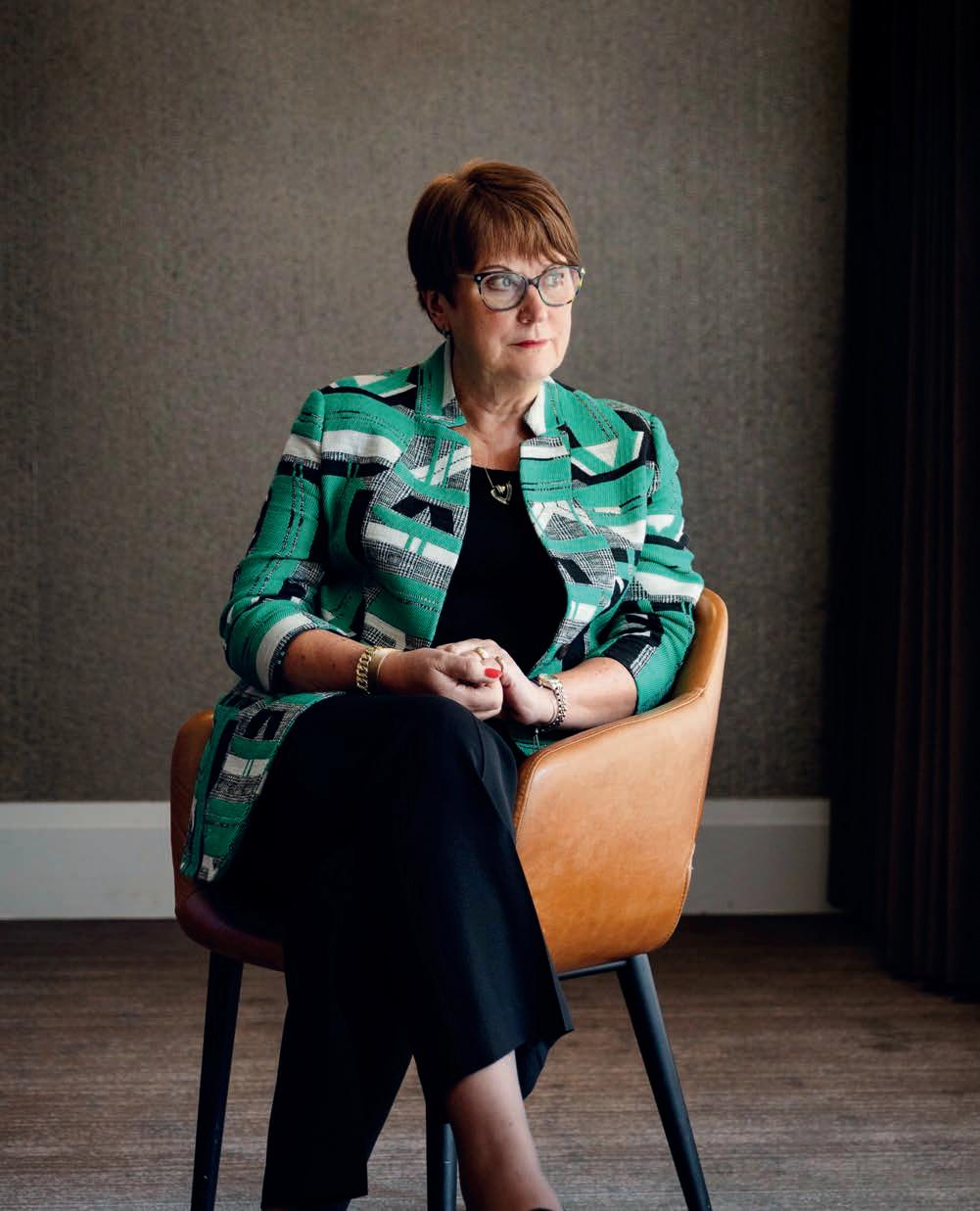
7 minute read
Judith Hackitt talks to CM
Construction leaders and professionals need to rebuild the public’s trust and confidence, says Dame Judith Hackitt. She speaks to Will Mann
Advertisement
I
t is nearly four years since the final version of Dame Judith Hackitt’s Building a Safer Future was published. Her report, as chair of the Independent Review of Building Regulations and Fire Safety, was commissioned by the government following the 2017 Grenfell Tower fire.
At the time, she called for “a radical rethink of the whole system and how it works”. So how does she rate the construction industry’s response to her recommendations?
“Mixed,” is her reply. Hackitt, who chairs the Industry Safety Steering Group (ISSG), is speaking to CM ahead of her appearance at the CIOB’s Safer Buildings conference later this month.
“The third annual report from the ISSG is very clear on this,” she continues. “We have seen some excellent examples of leadership, where organisations have stepped up and made changes without waiting for regulation to make them do it.
“But there are still too many who are waiting for the Building Safety Bill to come into force before they take action.
“Even in cases where third sector bodies have done all of the legwork to set up new frameworks – for example, the excellent competence work led by [Construction Industry Council chief executive] Graham Watts – the construction industry is not taking the steps which only they can take to train their own employees and drive the need for competence throughout the supply chain.”
She feels that “some of the initial reluctance was undoubtedly driven by a hope that new regulation would not happen at all”.
“No one was prepared to act,” Hackitt says, bluntly. “Then came the excuses – we can’t change until we see the detail of what is required, we can’t do the work to put things right because we can’t get PI (professional indemnity) cover – and so on.
“It is so the case that the level of fragmentation in the industry is a barrier to change – everyone waits for someone else to take the lead.”
However, Hackitt senses the mood may have changed.
“Things do now appear to be speeding up as the Building Safety Bill gets closer to Royal Assent,” she feels. “The construction industry is waking up to the reality that this is really going to happen.
“I am delighted to hear only this week that more than 300 organisations have now signed up to the Building a Safer Future charter and a similar number to the Code for Construction Product Information. I think this is the start of a real build-up of momentum – let’s hope so!”
Shocking and shameful
Rumbling on in the background, as a frequent reminder of the construction follies that led to the Grenfell fire, Hackitt’s report and the Building Safety Bill, is the ongoing inquiry into the tragedy itself. She has been shocked by what the proceedings have revealed.
“The evidence being uncovered by the inquiry is shocking and also shameful,” Hackitt says. “I don’t know how some of the people live with themselves on the basis of what they have admitted to.
Dame Judith Hackitt chairs the Industry Safety Steering Group
“Sadly, what it tells me about the industry’s culture is that my diagnosis four years ago was right. There is a lack of ownership and responsibility, the system is gamed, and corners are cut wherever possible.
“But I think some of the evidence points to practices that were – and may still be – worse than I thought.”
The Building Safety Bill has undergone many amendments since it was first presented to parliament, but Hackitt says that, overall, she is “satisfied with the shape and content”.
“It has stayed pretty close to the 53 recommendations I originally made,” she says.
“I am also pleased to see the recent developments which address the issue of ‘Who pays?’ for remediation of defective work on existing buildings. I have always believed that it was wrong for those who bought in good faith to have to pay for remediation and it should not be for the taxpayer to fund the remediation of shoddy work either.”
Responsibility for safety
One amendment that raised eyebrows at the end of March was the removal of the specific role of building safety manager from the bill.
However, Hackitt says: “I think people should read the amendment carefully before getting too excited. The specific role may have been removed and replaced by a more flexible approach but the requirement to appoint a responsible person with responsibility for building safety management is still there. Individuals will still need to be trained to be competent to carry out the function.”
On the question of whether the bill will drive the culture change in construction that she has called for, Hackitt is circumspect.
Dame Judith Hackitt on…
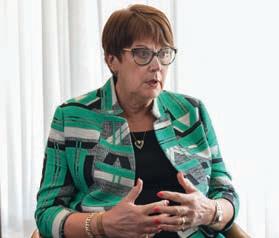
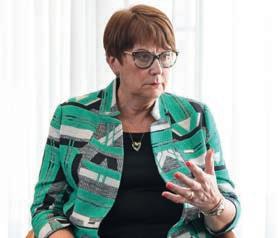
…industry culture …building safety managers
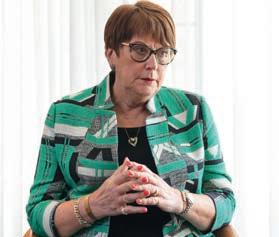
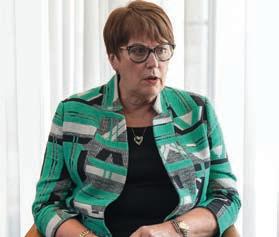
It is so the case that the level of fragmentation in the industry is a barrier to change – everyone waits for someone else to take the lead. The role may have been removed but the requirement to appoint a person with responsibility for building safety management is still there.

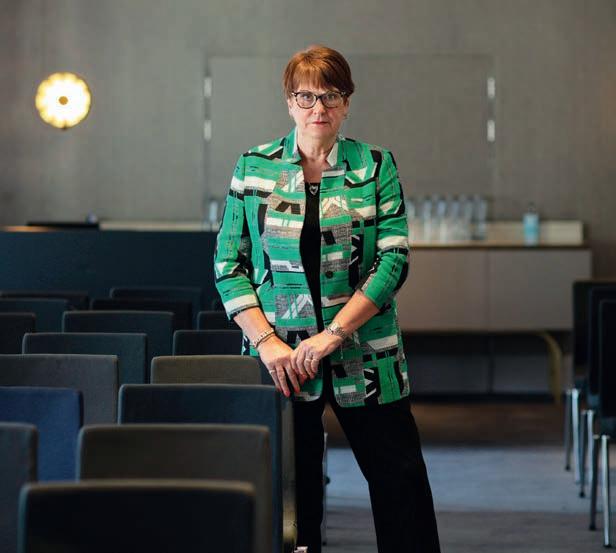
“Legislation will change behaviour and make people do the right thing, but legislation will not change the culture on its own,” she says.
“That’s why the Building a Safer Future charter is so important, and it is why we need leaders and professionals in the industry to recognise the need to rebuild the public trust and confidence which has been lost.
“I think that is really very simple. Stand up and be counted for doing the right thing – that’s what leaders should do. If I were in the shoes of construction professionals, I would want to make it as clear as possible that I distance myself completely from the appalling practices being laid bare every day in the Grenfell Tower Inquiry.”
New regulatory bodies
Looking ahead to the rest of year and into 2023, Hackitt says she will be working closely with the industry’s new regulatory bodies – the Building Safety Regulator and the National Regulator for Construction Products – to support their transition process from shadow into operational organisations. “It was always the intention that ISSG would hand over its activities to the new regulators once they were fully up and running,” she says.
“One additional specific area of focus for us over the next year will be on the finance and insurance sectors,” Hackitt adds. “They need to recognise the important role they have to play in creating the right culture by being able to differentiate between those who are doing the right thing and those who aren’t.
“At the moment, their approach is too much in the space of being overly cautious across the board. There is a real opportunity for them to be part of accelerating the shift to the right culture.” ●
For more information on the CIOB Safer Buildings conference, go to: https://saferbuildings.ciob.org.
Dame Judith Hackitt: "Legislation will not change the culture on its own” Curriculum vitae: Dame Judith Hackitt DBE
● Current roles: chair, Industry Safety Steering Group; government adviser, Building Safety Regulator; non-executive director, HS2; chair, Make UK. ● Appointed chair, Independent Review of Building Regulations and Fire Safety, following the Grenfell Tower fire in 2017; published its final report, Building a Safer Future, in 2018. ● Chair, Health and Safety Executive, 2008-2016. ● Worked for Exxon Chemicals for 15 years, the Chemical Industries Association and the European Chemical Industries Council. ● Graduated from Imperial College, London, in Chemical Engineering. ● Honorary fellow of CIOB, fellow of the Royal Academy of Engineering, fellow of the Institution of Chemical Engineers. ● Appointed Dame Commander of the Order of the British Empire (DBE) in 2016.











